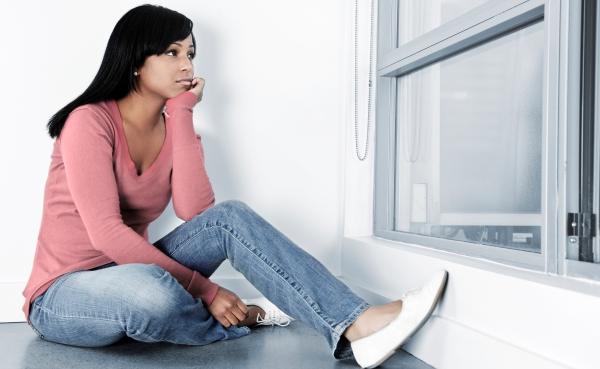
'Tis the Season to be Jolly, or Not: Tips for Coping with Holiday Blues

Mary Fristad is a professor of psychiatry, psychology and nutrition at The Ohio State University Wexner Medical Center. She contributed this article to Live Science's Expert Voices: Op-Ed & Insights.
As the old holiday favorite goes, 'tis the season to be jolly, but I've found that not everyone feels joy in their hearts and minds during this time of year. As a mood disorders specialist at The Ohio State University Wexner Medical Center, I often treat people who are suffering from the "holiday blues."
With the hustle and bustle of preparing for the holidays, the extra stress and strain can often cause people to feel sad and depressed. Sometimes these so-called holiday blues may be caused in part by seasonal affective disorder (SAD), which is a biologically driven condition that occurs throughout the winter months when people's daily body rhythms are out of sync with the sun. Lack of sunlight accounts for the majority of the more than 10 million Americans who are affected by SAD each year, and another 25 million-plus have a lesser form known as the "winter blues." In addition to the lack of sunlight, the holiday blues can be triggered by a variety of factors, such as:

- Grieving the loss of a loved one — parent, child, sibling or spouse.
- Coping with a change of circumstances, perhaps from the loss of a job or a serious illness.
- Having unrealistic expectations of a "picture perfect" holiday in the midst of financial, family or work troubles, or other tension.
- Stressing out because of too many demands for time or money.
- Disrupting normal patterns of eating, entertaining, exercising, working and sleeping.
- We often just have too many demands of our time right now. Suddenly we have shopping and baking and parties and concerts, and it's just a little too much. We end up not sleeping enough, stop exercising and start overeating. This time of year can be really discombobulating and quite overwhelming.
- So what I recommend is a combination of strategies to help manage these feelings of sadness and depression, and to hopefully help regain some of the joy and happiness of the holidays. Much of what I'm recommending falls into the "free medicine" category, such as making sure you are getting enough sleep, exercising and eating healthfully. Other suggestions that may help include:
- Scheduling "down time" to allow yourself to relax, pray, meditate or laugh. (If you don't laugh about it, you might cry or shout!)
- Reframing your expectations so that they are more realistic of what can actually be accomplished with the time, money and energy you have this year.
- Creating traditions that work for you, instead of a storybook version you've envisioned.
- For those who are grieving loved ones, consider celebrating the deceased by creating a meaningful ritual, such as lighting a candle by the person's picture, writing a letter to the loved one, or gathering family and friends together to share special memories of that person.
As we head into the New Year, consider making resolutions to improve healthy habits, starting with getting enough sleep. Each person has a different need for the right amount of sleep. Listen to, and respect your body's needs. When we are sleep deprived, we crave sugar and fat, tend to overeat, are low on energy and are often irritable and short-tempered. With enough sleep, it is easier to eat healthfully, exercise regularly and maintain a positive outlook on life.
Most importantly, be patient with yourself and others now — we are all going the through the holidays together, and you and I are not the only ones feeling the intensity.
The views expressed are those of the author and do not necessarily reflect the views of the publisher. This version of the article was originally published on Live Science.
Sign up for the Live Science daily newsletter now
Get the world’s most fascinating discoveries delivered straight to your inbox.









